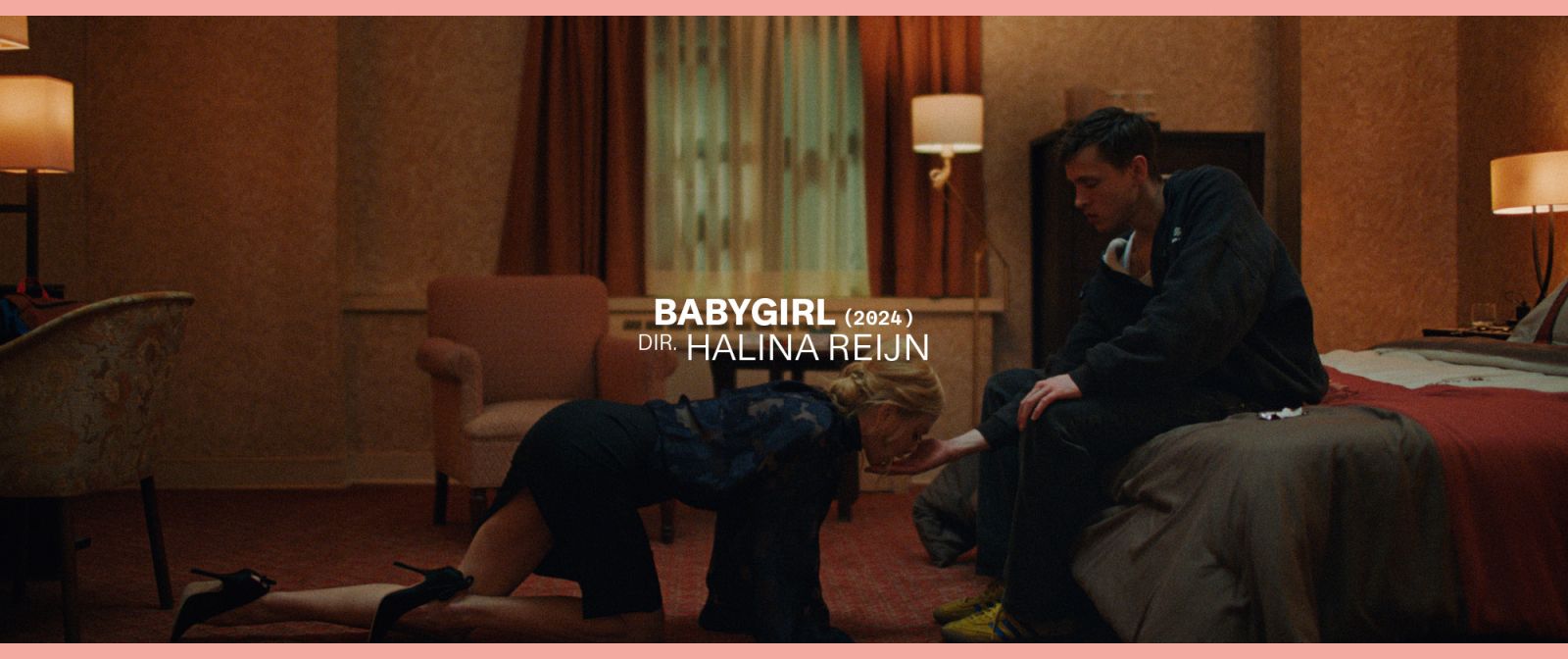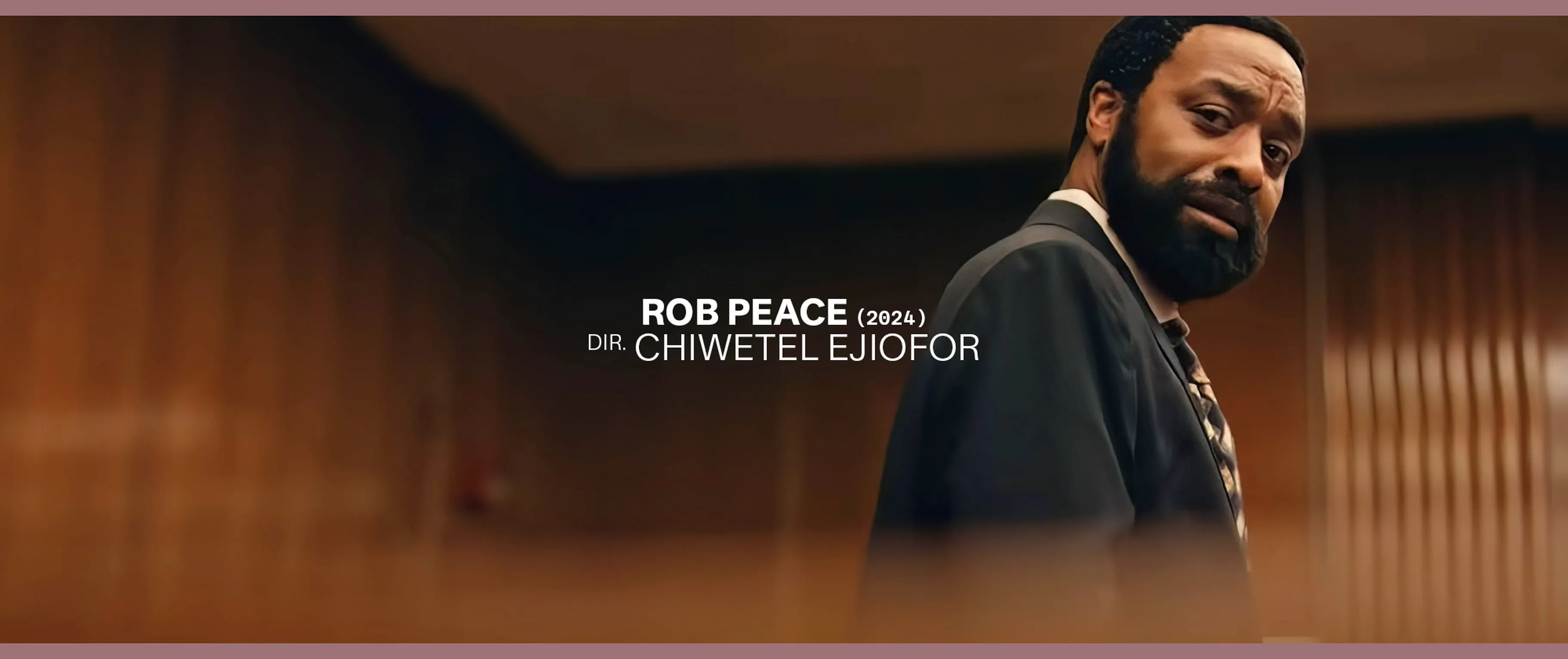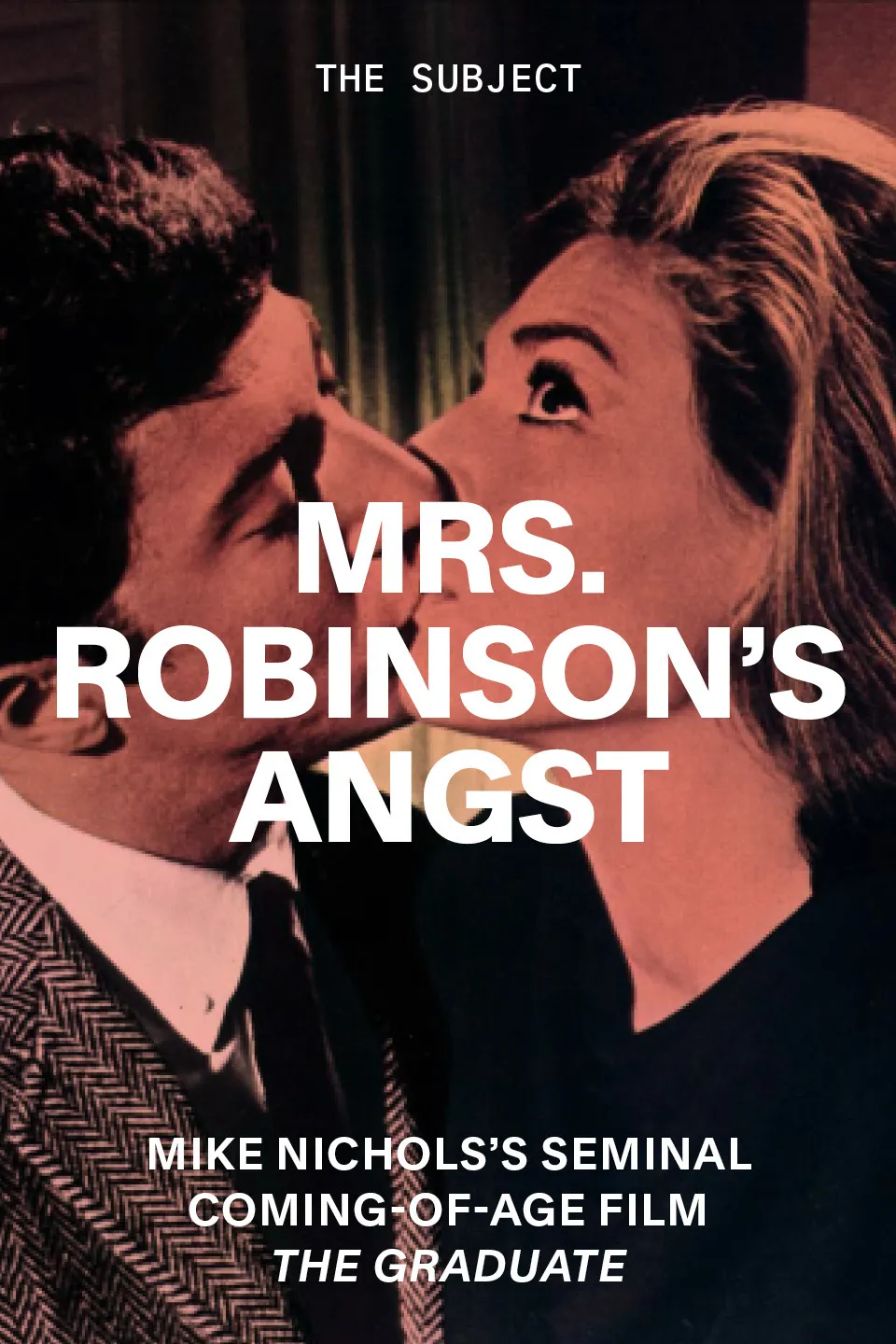Call Her Daddy
By Raven Smith

Babygirl, dir. Halina Reijn, 2024
Call Her Daddy
The sub/dom kinks and feminist underpinnings of Babygirl
By Raven Smith
January 3, 2025
Nicole Kidman orgasms twice in the opening sequence of Babygirl, writer-director Halina Reijn’s nuanced dissertation on dissatisfaction. First she orgasms wholeheartedly astraddle her theater-director husband, Jacob (Antonio Banderas). Immediately afterward, lights dimmed, planking on the floor of her expensive bathroom, she climaxes a second time while screening sub/dom pornography on her laptop, as a baby-voiced woman calls her screen mate “Daddy.” Initially you think you know this sex addict—she’s like Michael Fassbender in Steve McQueen’s Shame (2011). The truth is she’s just an unhappy customer. The double orgasm is a striking introduction to our central protagonist, Romy Mathis, a woman who, it transpires, is forever navigating the delicate line between performance and actuality—of what she’s already achieved and what she still desperately wants.
Harris Dickinson and Nicole Kidman in Babygirl
In Babygirl, 57-year-old Kidman’s chief executive balances the power of her position with the constant demands on women, namely to be pleasing (visually, socially) and approachable (sexually, emotionally). Her capable, exacting nature isn’t so much a facade as a quasi-frosty mode of being that has greased her pipeline from Yale grad to CEO. The fictional corporation Romy runs provides automation logistics for Amazon-type companies, and this mechanical efficiency contrasts with the knotty, human, monogamy-be-damned relationships we’re about to endure. (The suffocating, droning soundtrack by Cristobal Tapia de Veer amplifies the unpredictable sexual claustrophobia.)
Kidman’s frigid girlboss defies a simpler assessment—she’s successful to the naked eye, but underneath the manicured hair, frozen-placid features and icy-toned pussy-bow blouses lies a deeper vulnerability. She’s bruised from the glass ceilings she has had to shatter, but proud of the bruises. The careful construction of Romy’s life starts to destabilize when the strapping and nearly three-decades-younger office intern Samuel (Harris Dickinson) enters the picture, commandingly soothing a maniacal hound on the sidewalk with a pocketful of biscuits. During Samuel and Romy’s mentoring sessions, he immediately disrupts their dynamic of top dog and junior employee with naked flirtation. Before we know it, she has stuffed the tie he dropped at the office party into her mouth to masturbate in her executive office (it happens!). But Romy dithers. Is it okay to enjoy degradation? Is it feminist to comply? It’s Romy’s internalized shame that Samuel coaxes out, and soon he’s penetrated her (metaphorical and actual) triangle of sadness.
“There are no whips or chains or leather harnesses. they don’t swim through latex and k-y jelly.”
Despite the lustful reaction to A24’s psychosexual-thriller trailer (Dickinson is the internet’s strawberry-blond boyfriend), Babygirl isn’t conventionally horny. This isn’t the Michael Douglas–adjacent cat-and-mouse chase we’re used to in the genre—the instincts at play are more than basic. There’s tons of sex, bucketloads, but here we have circling alley cats and timid mice. Though Romy’s sexual arrival is central to the plot, it’s also somehow not the point. If I list the things that happen in this film, it sounds mad hot: erotic washroom mischief, sodden pool sex, Romy lapping from a saucer of milk (very cat of her!) and being called a “good girl,” just as Samuel referred to the dog he tamed. There are also multiple guttural orgasms shot in high definition. But Babygirl only has an outward resemblance to its blockbuster predecessors (9½ Weeks, Basic Instinct, Eyes Wide Shut). Where those films typically offer the carnal thrill of invasive intercourse (its own type of hot), Babygirl examines the nuances of kink (a different type of hot altogether). No Sharon Stone akimbo flashing. No high-speed car chases. No phallic dagger under the mattress. What we witness in Babygirl is the relatable human desire to de-shame our most shameful-seeming attributes, to admit to the beast within, to have the entire gamut of our fantasies reconciled.
To fulfill herself, Romy has to let go of the lifelong performance that’s kept her safely successful—in her career, in her marriage, in her motherhood. Yes, there are scenes of a highly sexual nature—Romy is forced to stand in the corner before being coaxed across the floor on all fours to receive a boiled sweet, like a pony—but the effect is to have us better understand Romy and Samuel’s thing as they too grapple to understand their thing. It’s all psychologically, rather than visually, arousing. The mental erogenous zone is the turn on. I know women like porn, and I’ve heard that men possibly have feelings too (I read women’s mags!), but the eroticism in Babygirl isn’t spelled out; it isn’t dialogued. The foreplay isn’t an action, it’s a simmering, unsettling sense of lust. This feels distinctly female, distinctly feminist, articulating an interior arousal that, historically, has been clunkily teased on celluloid from a man’s perspective. I wonder if with a male director, Kidman’s performance would feel so slow-burning, so layered, so empowered? Lars von Trier’s Dogville (2003), whose third act saw her repeatedly raped in a dog collar while chained to a mill wheel, felt to me infinitely more demeaning and exploitative for Kidman. She and Reijn are fully in control of the submissive steering here.


Almost immediately, Romy and Samuel enter into a dominant and submissive role-play that, on reflection and by the standards of our highly pornified culture, isn’t that gratuitous. There are no whips or chains or leather harnesses. They don’t swim through latex and K-Y Jelly. Babygirl is scat-free. Something about their sadomasochistic trysts feels very ripened-at-home, very DIY. Just a woman and a man and their seesawing, exhilarating power toss. That tension is infinitely more compelling than the actual, corporeal sex they have. They openly discuss what’s at stake. Who’s in charge? He’s the dominant bedroom partner. He’s the professional fledgling who can unravel her empire with a single email. She’s a titan of industry, a giving wife, a thoughtful parent. And at times it’s as though she simply can’t submit, she can’t surrender, she can’t be the babygirl. Yet the ache to fully shed the shackles of control drives her forward.
Pre-Samuel, Romy’s understanding of desire is fine-tuned to the people she shares it with—not so much selflessly giving as communion. The tender love she shares with her husband—we discover later in the film that her opening orgasm (along with every other in their 19-year marriage) was faked—never quite tallies with Romy’s asymmetrical relationship with Samuel, in which her more subterranean needs are met. With Samuel, consent is verbal and precise. She is liberated by her decision. When he asks outright, she is certain: “I want to be the babygirl.”
The female gaze comes into full force when we meet Samuel—Dickinson is shot almost voyeuristically, in fragmented glimpses, as Romy absorbs the underling’s initial presence in the office. The cinematic framing mirrors Romy’s eye: It’s her fantasy, it’s her imagination. Samuel becomes subjectively alluring rather than immediately, objectively hot. Don’t get me wrong, he’s an all-American specimen, brimming (at first) with unflinching bravado. With his paisley tie and blue collar there are echoes of ’80s-yuppie creepy, but Samuel never falls into the bloodlust of an American psycho. He is assertive yet unsure, direct yet confused. He blurts his desire, then asks for permission. He and Romy are equals in their certain uncertainty and give their consent in real time. There’s a security between the two that belies the (highly publicized and admittedly prevalent) grot, all tawdriness forgotten in an alarmingly tender moment as Samuel cradles Romy in a hotel room while George Michael’s “Father Figure” plays. This sounds like a hammy, saccharine, almost Fifty Shades of Grey device, but onscreen it feels sincere and emotional, like you’ve stumbled unwelcome into something private and cherished. Samuel is not a cardboard cutout of dominating male machismo, and Romy is not a cookie-cutter submissive. There are, dare I say it, shades of gray in their union. What keeps the narrative unexpected is that they are emotionally close and willingly honest, with no craving to see their relationship evolve. Their longing is confined to their present; these two aren’t falling in love so much as finding a perfect match outside of it.
![]()
Eyes Wide Shut, dir. Stanley Kubrick, 1999
![]()
Dogville, dir. Lars von Trier, 2003
Dutch filmmaker Reijn directed the horror comedy Bodies Bodies Bodies (2022), and though horror and comedy don’t pepper Babygirl’s plot, bodies are vital to its central communing as the kink unfolds in novel ways. Kidman has never shied away from auteur-driven, sexually explicit parts. In Eyes Wide Shut (1999) she’s horny and bored. She masturbates furiously during prison visitation in The Paperboy (2012), and there’s that ingeniously horrifying ending to Dogville. But Babygirl is the rawest we’ve seen her. As a Hollywood powerhouse, Oscar-winner Kidman is a woman expertly in control of her image, but she appears to have loosened her grip for Reijn.
Kidman’s physical presence in the film is striking—there’s the implicit vanity of the female CEO, the call-and-response orchestrated by Romy’s corporately feminine power. Her team behaves exactly as she instructs. She primps, she preens, she Botoxes. Her children scoff at her youthful aspirations—her daughter says she looks like a dead fish—while Samuel unquestionably adores her current state of beauty. As Romy, Kidman is at once physically and psychologically naked, purposefully and forcefully exposed at the gala of her husband’s theater production in a frock that seems crazy-glued onto her torso, her model-thin body as much a signifier of her female achievement as the expensive garment. The well-executed mascots of her self-assurance—the corporate power uniform, the direct speech, the decisive action—teeter throughout the film. Even dresses become redundant as she’s fleshily undressed when Samuel commands her to take off a ball gown in a hotel room. Romy’s performance of competence dissipates. She’s emotionally exposed when the affair is discovered and her daughter finds her convalescing from the emotional fallout at the family’s country house. We learn, incrementally, that our once-authoritative babygirl’s kink is to be stripped of control, disrobed and defenseless.
The careful genius of this film is that despite his own burgeoning psychology, Samuel is still able to safeguard their desire. Though Romy seeks emancipation by way of a junior colleague—a frowned-upon, if not downright-illegal HR choice—many of us can recognize the more relatable notion of unrealized ambition, of yearning for a catalyst to upset our status quo. Babygirl is not about the right or wrong way to readdress your life—neat moral takeaways are virtually impossible to siphon off. At its heart, this is a movie about human liberation—from the things we’ve neglected in order to get us to today, the things that have splintered off as we’ve whittled our circumstances.









